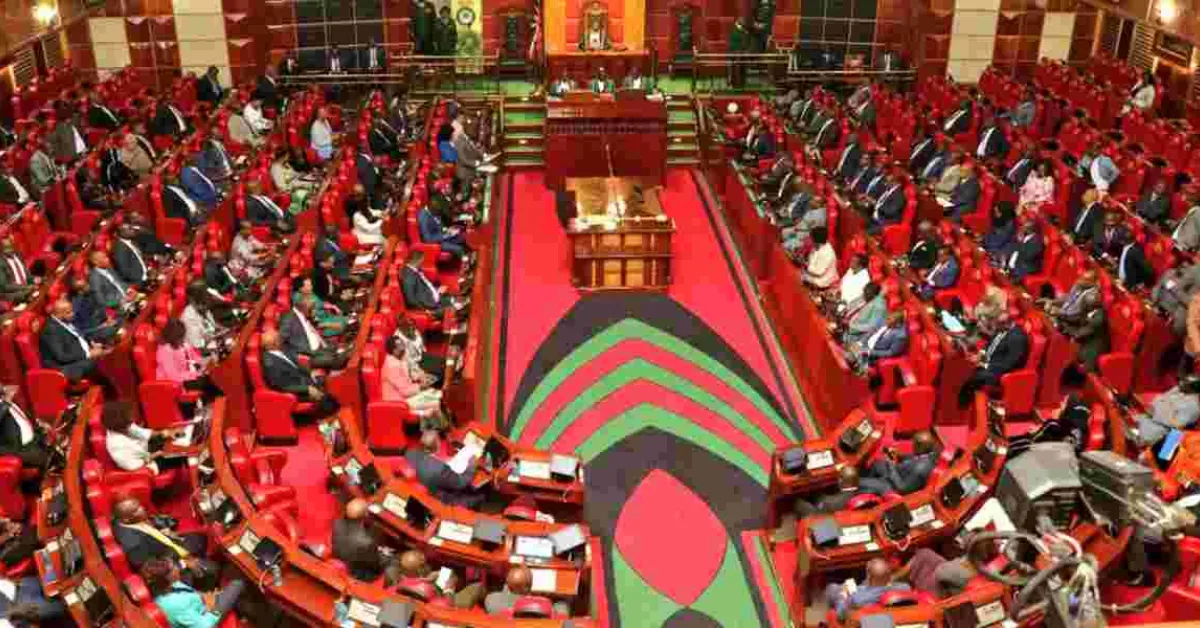Kenyans Up in Arms Over Proposed Finance Bill 2024

The proposed Finance Bill, 2024, aimed at amending tax laws and revenue-raising measures has ignited a firestorm of public discontent in Kenya.
As the nation's legislators prepare to deliberate the bill's fate, a resounding chorus of disapproval has erupted, with citizens voicing their concerns through various channels, including social media campaigns like #RejectFinanceBill2024. At the heart of the controversy lie several contentious provisions that have drawn widespread criticism. The introduction of a 2.5% tax on the value of motor vehicles, with a minimum threshold of Sh 5,000 and a maximum cap of Sh 100,000, has raised concerns about the potential burden on car owners.
Similarly, the proposed revisions to per diem taxation, which hinge on employers having approved policies and peg the maximum daily allowance at 5% of employees' gross monthly salaries, have sparked fears of reduced take-home pay for workers. The bill's proposal to raise the pension contribution limit from Sh 20,000 to Sh 30,000 per month has received a mixed response, with some viewing it positively while others worry about its implications for disposable income. Furthermore, the repeal of the Digital Services Tax (DST) and the introduction of a significant economic presence tax with an effective rate of 6% have faced resistance from those concerned about the potential impact on digital transactions.
Perhaps the most contentious aspect of the bill is the proposed imposition of a 16% Value Added Tax (VAT) on bread, a staple food item previously zero-rated. Citizens argue that this move will directly impact their daily lives and household budgets, exacerbating the already challenging economic conditions faced by many households. While the bill introduces an eco levy, signalling the government's commitment to environmental conservation, its specifics and potential impact remain subjects of intense scrutiny. Additionally, the proposed increase in the VAT registration threshold from KES 5,000,000 to KES 8,000,000, the exemption of the transfer of business as a going concern from VAT, and the subjection of certain financial services to VAT have further fueled the public debate.
Amidst the growing discontent, Majority Chief Whip Silvanus Osoro acknowledges receiving over 3,000 messages from concerned Kenyans. However, he maintains that most parliamentarians will not outrightly reject the bill but will instead scrutinize contentious clauses, such as the bread tax. As the bill heads for debate in the National Assembly, lawmakers find themselves at a crossroads, tasked with balancing the need to fund government operations and address the genuine concerns of their constituents.














Comments
Any bill has "pros and Cons"…
Permalink
Any bill has "pros and Cons"...the lawmakers has to compromise by curving what work best ...
Remaining 5.8 of the 6.2…
Permalink
Remaining 5.8 of the 6.2 hungry billionaire Kenyans who voted YES to the 2010 poop katiba should not complain.These idiots brought all these problems Kenyans are now facing.But nothing will change if you won’t DOWNSIZE the GK whether you complain or remove Ruto.His successor will still have to heavily tax you to finance the bloated GK as there are no resources to rely on.I wish one of the fools explained the reasons of nominating 900 MCA,MP/senator prostitutes-the least being paid shs 525,000(excluding allowances per month.
You Voted for Them; and You…
Permalink
You Voted for Them; and You're reaping What you Sowed. Si mliAmka maPema "Tuende tuMpigie Ruto🙄"? *Ngui ici. Click!
The only sober leader in…
Permalink
The only sober leader in Kenya with the brains and guts to set the record straight is Miguna Miguna, love him or hate him, he can undo alot of harm that's plague the country ....look at what the president of el-salvador is doing
Add new comment